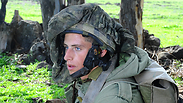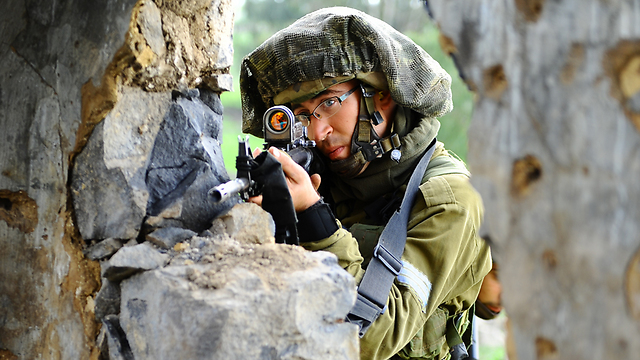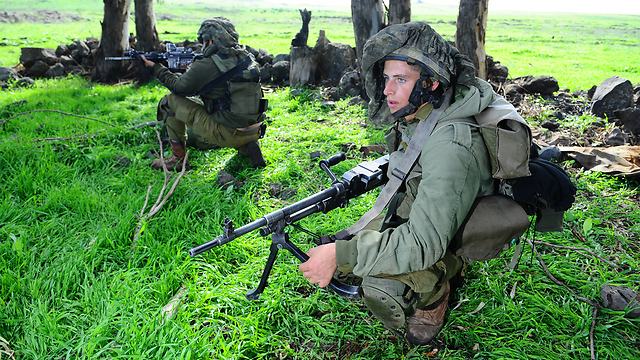
Netzah Yehuda soldier
IDF publishes 'Ten Commandments for haredi soldier'
As Israel prepares to recruit more religious soldiers, army releases pamphlet titled 'Defending the Nation, Guarding the Torah' to help haredim operate with minimal Shabbat desecration.
In the early morning hours of last Saturday, members of Netzah Yehuda – the IDF's haredi battalion – participated in a special forces operation in the Jenin refugee camp. The haredi soldiers were securing the perimeter of the area of operations; they may have wondered to themselves whether they broke Shabbat before and after the complex operation.
The IDF admits to the difficulties of catering to haredi soldiers and has produced an instructions manual for the battalion, in an attempt to solve a few of the dilemmas faced by religious soldiers who participate in operational actions on Shabbat.
The new enlistment law that was recently passed in the Knesset will significantly increase the amount of haredi men enlisted into the IDF in the coming years. The army has accrued experience in the matter and is prepared to absorb many more haredi draftees.
Related stories:
- With a near-empty plenum, Israel approves haredi draft
- Lapid on haredi draft law: A revolution
- NYC Orthodox Jews protest proposed Israeli draft
The IDF has opened a new emergency room for haredim, added additional courses to help integrate the religious soldiers with their secular counterparts, and is attempting to find solutions to every problem faced by haredim in the service.
In recent months, the military produced a pamphlet dealing exclusively with dilemmas and issues faced by combat soldiers who partake in operations on Shabbat. The pamphlet, titled "Defending the Nation, Guarding the Torah" contains a set of rules, all written by military rabbis serving as officers.
The very first directive emphasizes that the mentioned rules apply only when there is no urgent need for action. In other cases – like a firefight or immediate danger – the soldier must fulfill his mission as soon as possible.
"Desecrating Shabbat due to operational necessities is not a sin, but a mitzvah," says the pamphlet.
Main principles noted in the pamphlet
Shabbat check-list: Remove unnecessary equipment from flak jacket and vehicle, change batteries in radio equipment, prepare list of guard shifts, call parents to wish them Shabbat shalom, light candles. Refuel vehicles and check water and oil before Shabbat.Civilian action or operational activity? Determine beforehand whether the weekend missions are of a civilian nature – like securing tourists and reinforcing other units.
Driving on Shabbat: One should not push the gas pedal unnecessarily nor drive more than is required. Driving is only permitted for security incidents and medical emergency.
Using electricity: A fan may be turned on only if the temperature may harm the operational status of the unit.
Using radio: Announce ahead of time that you do not answer non-operational calls on Shabbat. If there is any doubt as to the nature of the call, the soldier must answer.
Outpost and base drills: Only before Shabbat.
Sticklight and thermal bag: Permitted on condition they prevent worse violations of Shabbat. Flak jacket may contain food, snacks, Torah, map, binoculors, compass, and night-vision gear, but not sunglasses, keys, and wallets.
Driving to a guard post on the far-side of the base is not permitted, and the soldier should consult with the rabbi on the correct procedure for larger bases.
Showering on Shabbat: The IDF heats its water using a thermal system relying on gas and solar energy; thus, hot water is not allowed on Sabbath. Cold showers are permitted.












